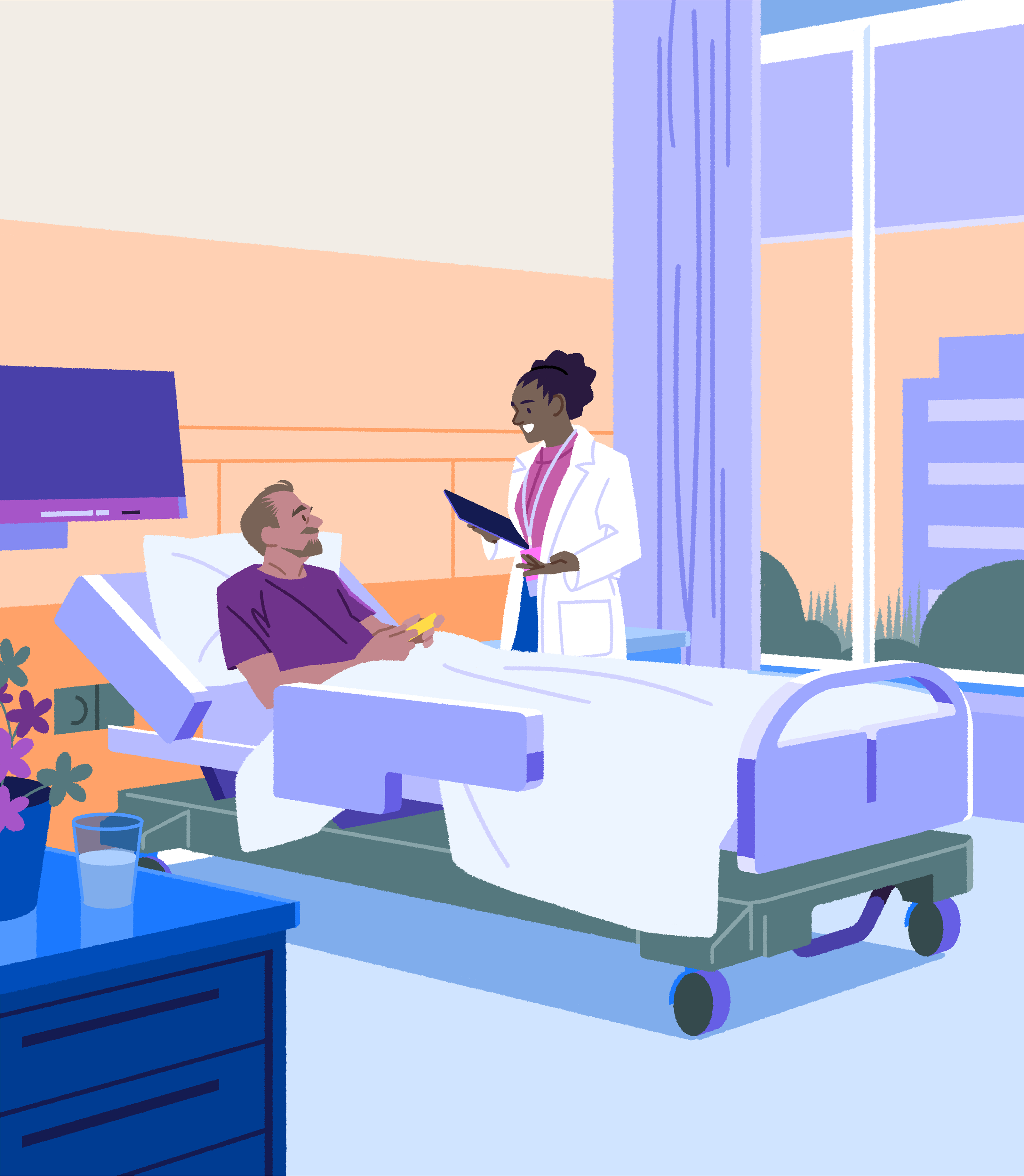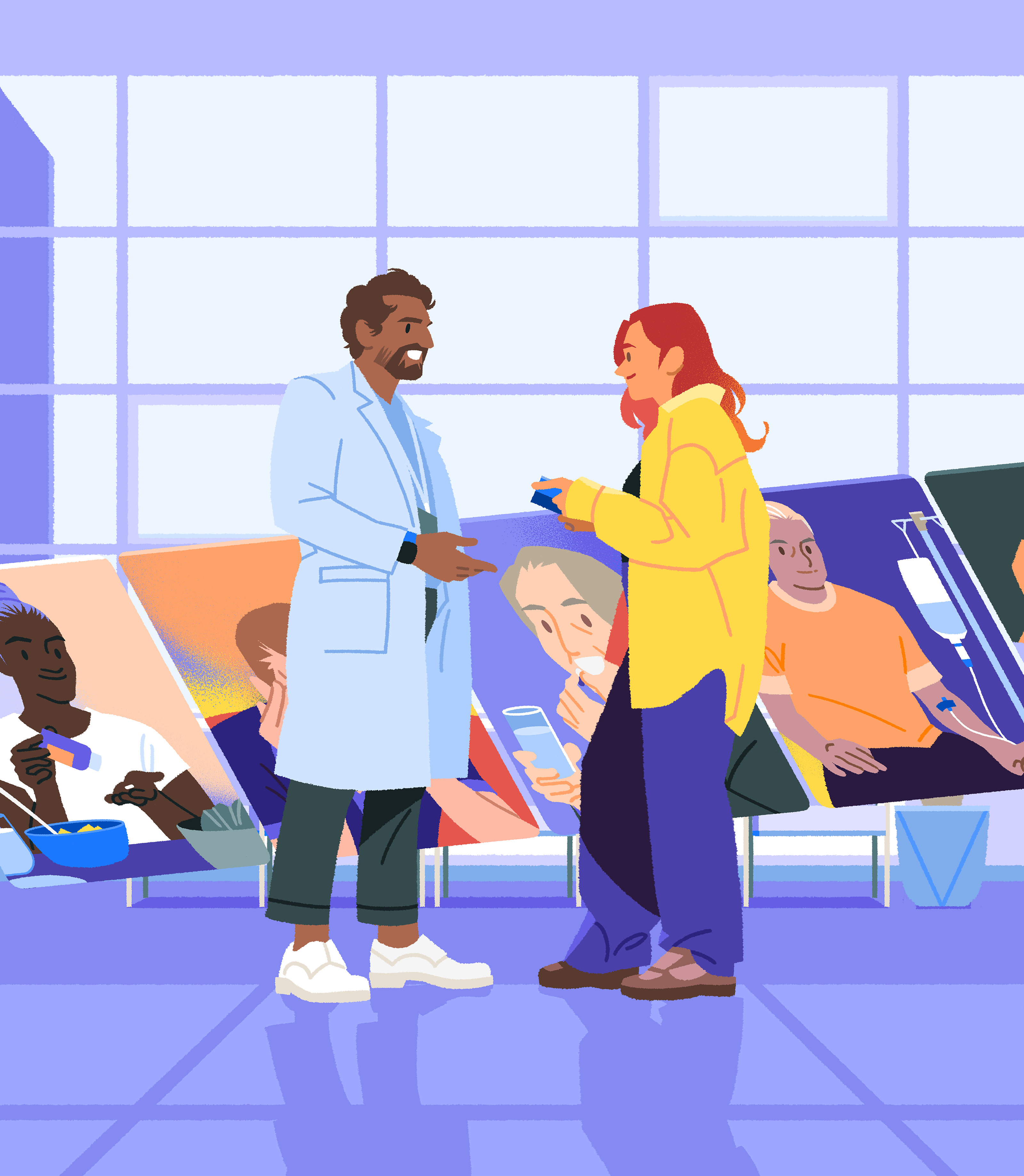What hospital and health-system pharmacists do
Hospital and health-system pharmacists are important members of a patient’s healthcare team. They work in hospitals, clinics, physician offices, and outpatient pharmacies, making a difference in ways big and small.


Our Role:
Hospital and health-system pharmacists work in emergency departments, ICUs, cancer centers, pain clinics, and more.
They serve a critical role in your care and are responsible for:
- Confirming your medication history
- Managing all aspects of your medication regimen
- Monitoring your response to your medications and making necessary adjustments
- Partnering with your physician to select the right medications and treatments for you
- Advising nurses on proper administration of your medications
- Educating you about your medications
- Providing options to make access to your medication easier
Essential Team Members
Hospital and health-system pharmacists participate on the patient care team – along with physicians, nurses, and other health professionals – as medication specialists who are responsible for all your medications.
Education
Your hospital or health-system pharmacist is always ready to teach you about your medications. They’ll walk you through how to take your medicine, the side effects, and expected results. You can also ask them questions about how your medications work.
Advise
Your hospital or health-system pharmacist is your care team’s medication specialist. They manage all aspects of your medication therapy and work with your other doctors to select the best medications based on your diagnosis and personal needs.
Confirmation
Your hospital or health-system pharmacist can see the medications listed in your health record. They’ll make sure those medications still work with the goals of your treatment, even if another doctor prescribed them. If not, they can make the right adjustments.
Provide Options
Your hospital or health-system pharmacist can help you get your medications at the best cost. If your original prescription is too expensive, they may be able to provide options that cost less.
We’re on your side
Pharmacists work in just about every part of a health system. From inpatient hospital units to cancer clinics to community pharmacies — wherever you turn your pharmacist is on your side and ready to help.
patient resource:
Contacting the hospital or health-system pharmacist on your care team


We’re specialists
As medication specialists, hospital and health-system pharmacists provide you with unparalleled care. Many even become certified in specific areas of medicine after earning their pharmacy degree. They practice in specialties like cardiology, oncology, or pediatrics, and they have deep knowledge of their field.
patient resource:
Questions to ask your hospital or health-system pharmacist

Watch hospital and health-system pharmacists in action
A meaningful role in patient care
Interested in joining the rewarding field of hospital, clinical, and community pharmacy? Get a closer look with ASHP, the American Society of Health-System Pharmacists.
